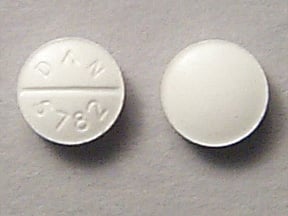
Atenolol-chlorthalidone Coupons & Savings Card – Discount Prices from $37.49
Generic for: Tenoretic 50, Tenoretic 100
My prescription
Edit
50-25MG, Atenolol-chlorthalidone (90 Tablets)
Select pharmacy

CVS
$37.49
COUPON PRICE
Albertsons
$40.12
COUPON PRICE
Walmart
$40.64
COUPON PRICE
Walgreens
$41.40
COUPON PRICEAtenolol-chlorthalidone savings card
Show this card to your pharmacist
CVS
$37.49
BIN
ID
PCN
GRP
019876
LH3DFE3B66
CHIPPO
LHX
Powered by
More prescriptions for hypertension
More prescriptions for hypertension
Price history for Tenoretic 50 (brand) & Atenolol-chlorthalidone (generic)
90 Tablets, 50-25MG
Average retail price for Tenoretic 50
Average retail price for Atenolol-chlorthalidone
Average SaveHealth price for Atenolol-chlorthalidone
Our price history data is based on aggregated prescription data collected from participating pharmacies in America. Our prescription data updates daily to reflect the latest price changes. If you notice a missing data point, it means there wasn't sufficient data available to generate a monetary value for that date.
We analyzed Atenolol-chlorthalidone prices for (50-25MG, 90 Tablets) over the last 12 months. The average retail price was $35.00, while the average price using the SaveHealth discount card was $34.85. That's a savings of approximately 0.43% when using our Atenolol-chlorthalidone coupon.
Compared to the generic version, Tenoretic 50 had an average price of $1297.09 over the same time period. With the SaveHealth savings card, Atenolol-chlorthalidone is 97.31% cheaper on average than Tenoretic 50.
*Retail prices are based on pharmacy claims data, and may not be accurate when we don't have enough claims.
Atenolol-chlorthalidone dosage forms
Dosage Quantity Price from Per unit 50-25MG 90 Tablets $37.49 $0.42 50-25MG 30 Tablets $13.05 $0.43 50-25MG 60 Tablets $23.59 $0.39 50-25MG 100 Tablets $38.73 $0.39 50-25MG 9000 Tablets $1145.00 $0.13 100-25MG 30 Tablets $15.64 $0.52 100-25MG 90 Tablets $42.00 $0.47 100-25MG 100 Tablets $43.74 $0.44
| Dosage | Quantity | Price from | Per unit |
|---|---|---|---|
| 50-25MG | 90 Tablets | $37.49 | $0.42 |
| 50-25MG | 30 Tablets | $13.05 | $0.43 |
| 50-25MG | 60 Tablets | $23.59 | $0.39 |
| 50-25MG | 100 Tablets | $38.73 | $0.39 |
| 50-25MG | 9000 Tablets | $1145.00 | $0.13 |
| 100-25MG | 30 Tablets | $15.64 | $0.52 |
| 100-25MG | 90 Tablets | $42.00 | $0.47 |
| 100-25MG | 100 Tablets | $43.74 | $0.44 |
